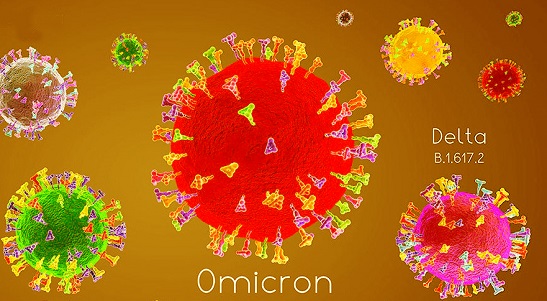Interferon Gamma by Activated CD4+ T Cells Shown to Inhibit COVID-19 Variants Differently
Nikhil Prasad Fact checked by:Thailand Medical News Team Nov 07, 2024 1 year, 3 months, 1 week, 1 day, 3 hours, 20 minutes ago
Medical News: How T Cells Could Hold the Key to Fighting Different COVID-19 Strains
Researchers from MiCAN Technologies Inc.-Japan, Osaka University’s Research Institute for Microbial Diseases-Japan, and HiLung Inc.-Japan recently uncovered a fascinating role played by a specific type of immune cell in fighting COVID-19. The study highlights how CD4+ T cells release interferon-gamma (IFN-γ), which effectively limits the spread of SARS-CoV-2 virus, depending on both the strain of the virus and the type of infected cell. This
Medical News report discusses these findings and their potential to guide new therapeutic strategies.
 Interferon Gamma by Activated CD4+ T Cells Shown to Inhibit COVID-19 Variants Differently
Interferon Gamma by Activated CD4+ T Cells Shown to Inhibit COVID-19 Variants Differently
The team explored how culture supernatant - a fluid from cultured, activated CD4+ T cells - impacts SARS-CoV-2, including the original virus, Delta, and Omicron BA.5 strains. Notably, the original strain was most susceptible to this immune response, while the Delta strain showed much more resistance. This insight points to the potential strain-specific role of IFN-γ, produced by activated T cells, as an antiviral agent against SARS-CoV-2.
The Experiment Setup and Key Findings
Using Clone 35, a human monocyte cell line derived from induced pluripotent stem cells (iPS), researchers exposed these cells to various SARS-CoV-2 strains. In the presence of culture supernatant (SN) from activated CD4+ T cells, the replication of the original strain of SARS-CoV-2 was inhibited, while the Delta variant displayed minimal inhibition. Additionally, tests using human alveolar epithelial cells revealed that IFN-γ’s effect varied based on the cell type, with comparable inhibition across strains in these epithelial cells.
The team further found that IFN-γ, when added directly to the cultures, produced a similar strain-specific effect. The Delta variant, which previously caused widespread infection, resisted IFN-γ treatment, potentially explaining its capacity for rapid spread despite immune responses. However, in lower doses, the culture supernatant even reduced the risk of antibody-dependent enhancement (ADE), which can make infections worse in some cases.
How IFN-γ Inhibits SARS-CoV-2 Replication
To understand how IFN-γ limits viral replication, the researchers conducted RNA sequencing on the affected cells. This analysis showed that IFN-γ activates certain interferon-stimulated genes (ISGs), especially in Clone 35 cells, suggesting a highly targeted immune response against SARS-CoV-2. Yet, the response of the virus to these ISGs varied by strain, revealing a unique challenge: each variant’s sensitivity to IFN-γ could impact the effectiveness of T-cell responses.
An interesting observation from the study was that when Clone 35 cells were pre-treated with IFN-γ, they became resistant to viral replication by the original strain. In contrast, Delta’s resistance to this approach highlights the evo
lving ability of SARS-CoV-2 strains to adapt, potentially affecting their spread and impact.
Conclusions and Future Implications
The study sheds light on the immune system’s diverse strategies against SARS-CoV-2, particularly through the release of IFN-γ by activated CD4+ T cells. With certain SARS-CoV-2 strains like Delta and BA.5 showing resilience to IFN-γ, these findings emphasize the need for tailored treatments that account for specific virus strains. Additionally, the observed impact of IFN-γ on reducing ADE underscores its potential therapeutic value, though further studies are needed to explore how these effects might be replicated in real-world clinical settings.
These findings were published in the peer-reviewed journal: Scientific Reports.
https://link.springer.com/article/10.1038/s41598-024-77969-4
For the latest COVID-19 News, keep on logging to Thailand
Medical News.
Read Also:
https://www.thailandmedical.news/news/breaking-long-covid-news-cambridge-study-shows-persistent-t-cell-dependent-interferon-gamma-release-in-individuals-who-develop-long-covid
https://www.thailandmedical.news/news/breaking-ivermectin-users-will-likely-suffer-severe-or-lethal-mpox-infection-due-to-diminished-interferon-gamma
